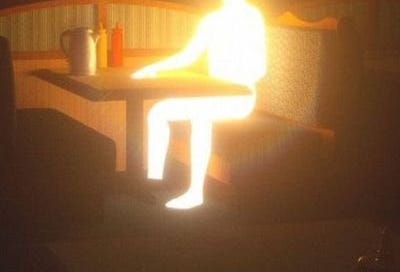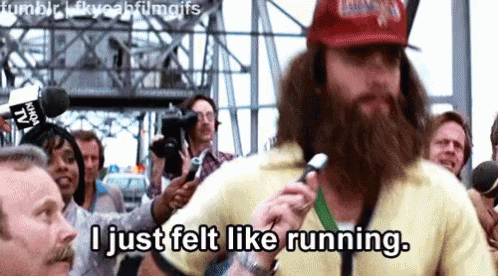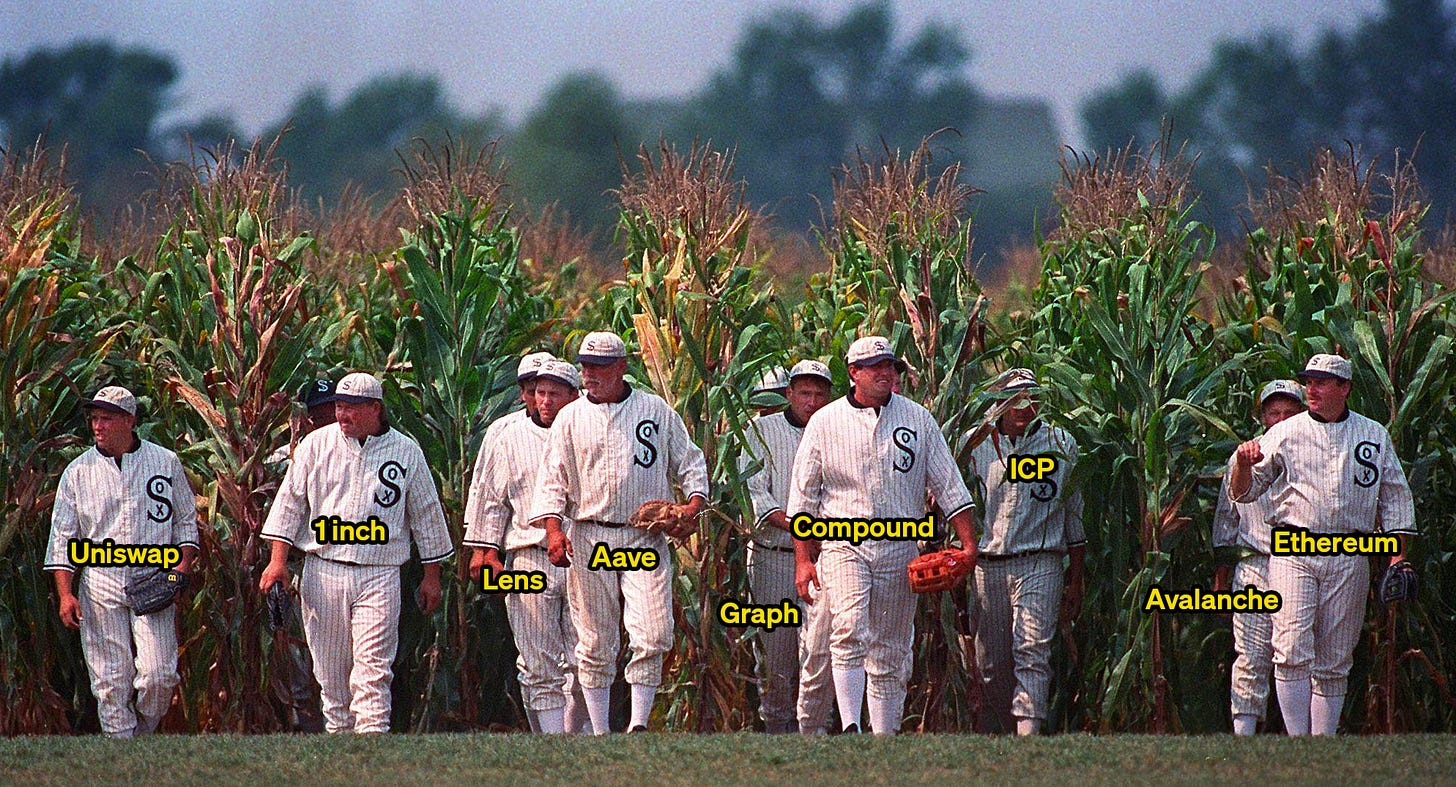This post will be more personal than any previous one. So, if you are looking for a new research post on a grant program, you won’t find it here.
Instead, I will give some perspective on my journey and what I will work on in the days and months ahead. What started as my bear market hobby has turned into something I didn’t expect, with new opportunities to focus on the places I find most interesting.
This is my story.
Two Important Lessons
I’m a guitar player, playing metal in my early teens and branching into other styles, including blues, grunge, and jazz. I can’t read music and am entirely self-taught through hours of practice and perseverance. Music has taught me two valuable lessons:
The ability to improvise.
Even when you mess up, you must keep playing and never miss a beat.
I applied these lessons to my life, which have been invaluable in my work in crypto. They are the reason I am here today, writing this piece.
Bull Market
Where did this journey start for me?
In 2017, while I read Sapiens, I became fascinated by the concept of shared myths and that our oldest shared myth is money. Around the same time, I started to discover Bitcoin.
I don't know where or how I first found Bitcoin. Once I understood its potential (yes, I admit I am in it for the tech), I dedicated countless hours to reading, learning, and wrapping my head around cryptocurrencies.
I read everything I could find by Nick Szabo, Jameson Lopp, Andreas Antonopoulos, Vitalik Buterin, and many others. I also started to find my way into the strange world of CT, where I discovered vibrant (great adjective, I know) discussions on economics, politics, and the social implications of this technology.
I had found my place and was excited about what the future held in store.
Bear Market
In January 2018, I learned about gravity.
I woke up one day to the carnage of the market crashing; I was not ready for it. I bought into the hype and didn’t consider risk. I saw my portfolio fall through the floor. I stopped checking in on CT and my portfolio and lost hope.
I became disillusioned and found myself with a lot more time on my hands. I decided I wanted to use this time to focus on my music and to try and give back to my community.
I never had a consistent drummer, so I decided to train one. I enrolled my son, who (at the time) was six years old, in the local music school. One day, while waiting for him to finish practice, I decided to take a random walk across the parking lot to a dilapidated building that turned out to be the community food bank.
Broken Windows
The food bank exemplified (not in a good way) the concept of “Broken Windows.” For many reasons, the organization had lost the community's trust and was withering away with each passing day. It had garbage and rotten food piled up everywhere, black mold throughout the facility, and generally exuded a sense of hopelessness and despair.
It was sad, and for some crazy reason, I wanted to do something about it.
I started volunteering regularly and eventually attended a board meeting. During this meeting, I discovered the organization had around $15K in the bank and was a few months from going under. I soon found myself as the Board President of this organization and facing some of the most challenging moments of my life in the winter of 2019.
Those lessons learned from music came into focus, and something incredible happened. Despite it looking like we were NGMI, we improvised and kept playing. Over the last few years, our team has turned that organization into one of the more innovative food banks in the country. With the wind at our backs, we are now moving into an exciting phase of building systems that are starting to change the dynamic of how a community approaches food security.

Playing to My Strengths
Despite the success I saw with the food bank, one of my biggest regrets was not staying closer to crypto during the previous bear market. As DeFi Summer 2020 started to light up I promised myself I would find a way to remain connected to the space even when the market inevitably turns “down only” again.
I started to think about ways I could provide value in the space. In late 2021, as the bull market was in full swing, I started by developing Sov’s Compendium. The original idea for the site came from this tweet from Shual. Shual had so many resources listed that I thought it would be helpful to capture them all in a notion site.
Once I did that I figured I would just keep on going and add things as I found them.
Today, the site boasts over 1600 entries and attracts thousands of monthly visitors from the crypto community. While building the Compendium, I've forged numerous relationships within the industry.
In addition to Sov’s Compendium, I created this Substack in 2021 and committed to writing more. The first articles I wrote could have been better, and nothing unique or different about them. I didn’t want to be one more guy posting charts and his strong opinions on what dog coins you should buy.
Through my experience working with the food bank, I received a lot of exposure to grants as a 501c3 non-profit entity. It was through these grants that we funded rapid growth and innovation throughout the pandemic.
I noticed many announcements for grant programs and Ecosystem Funds. I thought, “surely there is a Dove Metrics, but for grants programs,” I looked and was surprised that no one was tracking them (outside of random spreadsheets and lists here and there).
I had collected a list of programs on Sov’s Compendium and realized that with minimal effort, my list was already one of the more comprehensive. I saw this as an opportunity and started by consolidating the information across multiple sources on a Notion called The Common Good.
This was it. A place I could play to my strengths and provide value. Just as music taught me, I improvised and kept on playing.
The Common Good
I started to write research reports and I found common information across these grant programs and compiled them into reports that anyone could read and learn more about how they function. My goal was to bring greater clarity to the programs and establish standards for information.
I started with a few reports around the ecosystems where I could find the information (something that was much more challenging than I originally anticipated). Then, Amplice from LobsterDAO said I should dive into Uniswap’s Grant Program; this was some of the best advice I have ever received.
I started working on my report for Uniswap and received support from my LobsterDAO frens, including Nemo, Ivan, Cryptographic, Amplice, and ibis. These guys helped me with various things, including advice, editing, reviewing, and promoting via the LobsterDAO Research Substack. I can’t thank them enough for their early support.
Up Only
Once the Uniswap report was published, things started to get interesting. Over the next few months, many interesting opportunities were presented around my work. These included:
Ken Ng and Devin Walsh from Uniswap Foundation thanked me for my retrospective and mentioned my work in a retrospective Ken wrote.
Grendel, from DAO Lead at Polygon Village, engaged with me to create a similar retrospective, Polygon Village Content, and provide services to assess their program and provide recommendations.
I connected with Shreyas from Llama and worked with members of Llama to collaborate on a research report on Nouns DAO
I had the opportunity to work with 0xngmi and the team to launch LlamaoGrants and heard from many of you how helpful a resource is for finding opportunities around grants in crypto.
Aave Grants DAO gave me a grant to produce a retrospective published in The Defiant!
Multiple projects contacted me to see if I could help with grant matching. One of the more notable I worked with was CryptoStats, where I was able to help obtain grants from Avalanche (for CryptoFlows), Uniswap, and the Ethereum Foundation.
My work with Questbook. They have produced some amazing things, including Reclaim Protocol, ZeroWallet, and questbook.app, a dApp that enables grant programs to find and fund builders.
And finally, starting my work with Blockworks, I am currently helping with our strategy around grants and governance.
The journey with Blockworks started with a connection over Twitter with Mike Ippolito (he reached out on my birthday, ironically enough). Mike and I had multiple conversations over the next few months, and after learning more about my background and experience, Mike and Jason decided to bring me onto the team.
My first task was to use the information I had gathered to create a comprehensive site that brings together data across all the active grant programs in crypto today. Sites like The Common Good and LlamaoGrants were well received by the community, but I had a different vision for what I wanted to build. Blockworks gave me the resources to develop something I am very proud to announce today: Grantfarm
Grantfarm
Grantfarm is a grant aggregator that aims to provide the most comprehensive and up-to-date list of grant programs, bounties, and RFPs, in crypto.
The platform will enable applicants, programs, and the broader community to search for and discover funding opportunities based on different criteria, including areas of interest, expertise, and adjacency to work done previously. In addition to providing a place for these listings, we will use the reach of blockworks.co to feature content on grant programs, including research, reports, and announcements from active programs across the space.
Through this project, we’re looking to provide the knowledge and understanding needed for applicants to find opportunities for funding through grants and grant programs to have a platform to reach more users through blockworks.co (a site that receives millions of views a month).
I’m very excited to launch this platform, but I am honestly much more excited to start working with more users and programs to improve the quality and value provided by the site over time.
By providing a comprehensive, evolving list of grants, we can help give clarity to applicants and greater visibility and awareness to grant programs.
Reflections
In some ways, this article might seem like an announcement of Grantfarm, but to me, it’s a story of how it all came to be. There were many times along the way I could have stopped my work and become discouraged, but, largely thanks to the lessons learned from music, I didn’t, and here I am.
My advice to anyone trying to do the same and building towards a vision is to find something that plays to your strengths, provides unique value, improvise when faced with challenges, and keep playing even when you feel like it’s time to stop.
Until next time ✌️
- Sov








